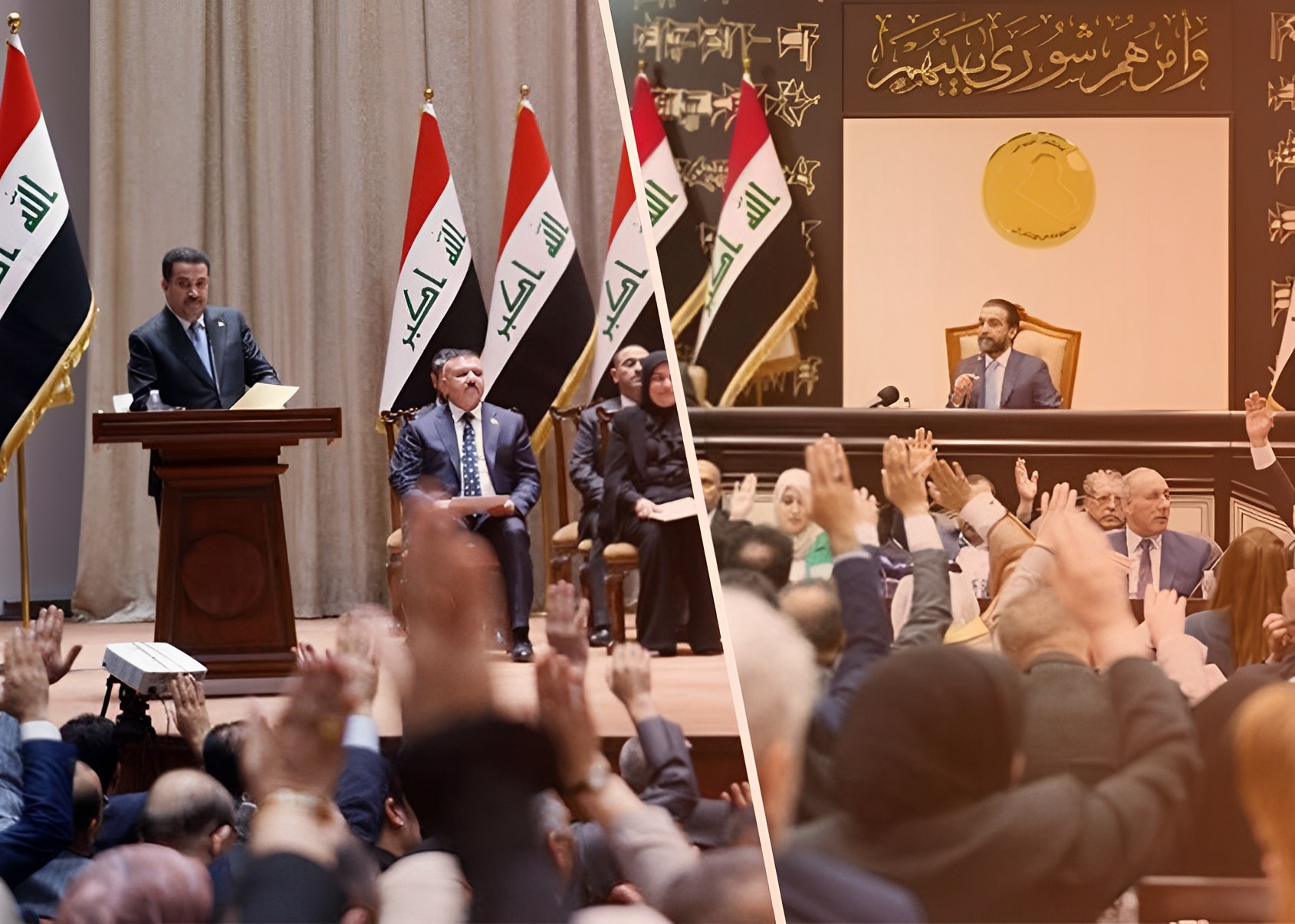The Iraqi Parliament voted on the new budget on June 12, 2023, following 60 deliberations of the Finance Committee and over 180 discussions with government officials. Out of the 329 deputies, 229 participated in the vote for a three-year budget. Mohammed Shia al-Sudani's government may challenge budget provisions in the Federal Court, which may embody the inclinations of the executive branch.
In 2017, Haider al-Abadi's administration removed several elements from the approved budget. Similarly, al-Sudani's government has hinted at the possibility of a similar action but has not provided further details.
Despite its substantial size and significant spending, the budget's ratification has set new precedents and instigated political and structural discord with deep implications. The "Falcons," seven members of the Finance Committee, have initiated modifications to various sections of the budget. However, based on two previous Federal Court decisions (No. 25/2012 and 35/2021), the legislative authority lacks the jurisdiction to make profound alterations to the preliminary budget law. This maneuver by the Parliamentary Committee exhibits the potent influence certain deputies have over the legal and constitutional mechanisms of budget ratification and the Council of Ministers, undermining foundational agreements and engendering a new era of mistrust.
Examining the budget reveals that nothing in Iraq truly reflects the principles of a budget, economic blueprint, or fiscal strategy. The ratified budget comprises several components that accommodate the demands of diverse parties, factions, and groups, anticipated to stimulate a consumer economy despite caution from the global community.
In the interim, the government had to generate 150 thousand jobs in the public sector, and advances of ministries totaling 160 trillion dinars were obscured. Consequently, the budget functions more as a revenue dissemination mechanism than a financial and economic guideline, posing a significant hazard in the medium to long term if global oil prices fall below $70 per barrel, leading to the financial deficit and insolvency.
The budget also reveals that the term "Running the State Coalition " (RSC) is somewhat hollow, as the MPs who predominantly introduced the budget bill in parliament have substantial ties to right-leaning armed factions within the Shiite demographic. These representatives resist political agreements and prioritize the sentiments of the Shiite public and their social media constituents, benefiting Shiite dominance and centralism within the coordination framework.
From a political perspective, the budget is forecast to provoke renewed tensions, primarily surrounding the upcoming provincial elections and the decision to replace Parliament Speaker Mohammad al-Halbousi. Additionally, Shia has pledged to implement ministerial changes, but the complexity is compounded by some parties and the ensuing budget dispute, leaving uncertainty about Shia's authority and potential constraints from the factions and groups that elected him as Prime Minister.
The 2023 budget, spanning three years instead of the customary one, marks a unique event since 2003, with a prevailing belief that the government has become disinterested in the parliament, affording Sudani greater latitude to maneuver. Al-Sudani is anticipated to participate in the provincial elections as a Shiite representative, running on independent Shiite lists aligned with the protestors.
The budget disagreement has strained the unanimity of the coordination framework, yet a complete rupture is unlikely, particularly considering the impending threat of al-Sadr. Furthermore, the Shiite framework, encompassing 130 parliamentary seats, could be imperiled by any schisms. Simultaneously, Tehran, the principal backer of the Shiite framework, is presently focused on fostering reconciliation between Saudi Arabia and Egypt and maintaining unofficial contacts with the Biden administration, rather than concentrating on Iraq's internal discord.
The budget talks have precipitated innovative political and legal developments, augmenting mistrust among participants in the current political process and disrupting the typical interaction between the government and the parliament.
From an economic standpoint, the budget signifies a considerable catastrophe, resembling a revenue distribution mechanism more than a financial strategy, heavily relying on maintaining an oil price above $70 per barrel. However, given Iraq's current transient political and economic stability, Iran also seeks stability. The deleterious political and economic repercussions of the budget will not manifest immediately but deferred until the medium to long term.
The adoption of the 2023 Iraqi budget has exposed intricate political dynamics and fiscal challenges shaping Iraq's future. With important constitutional implications, factional discord, and a budget deviating from traditional financial strategy, Iraq teeters on the edge of a cliff. As global oil prices remain unpredictable, the prospect of a financial deficit looms, while political uncertainty grows due to the present government's ties to right-leaning factions. Therefore, Iraq's economic and political stability in this new era depends on delicate internal negotiations, global economic trends, and the actions of its current administration.



